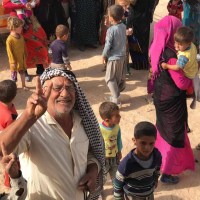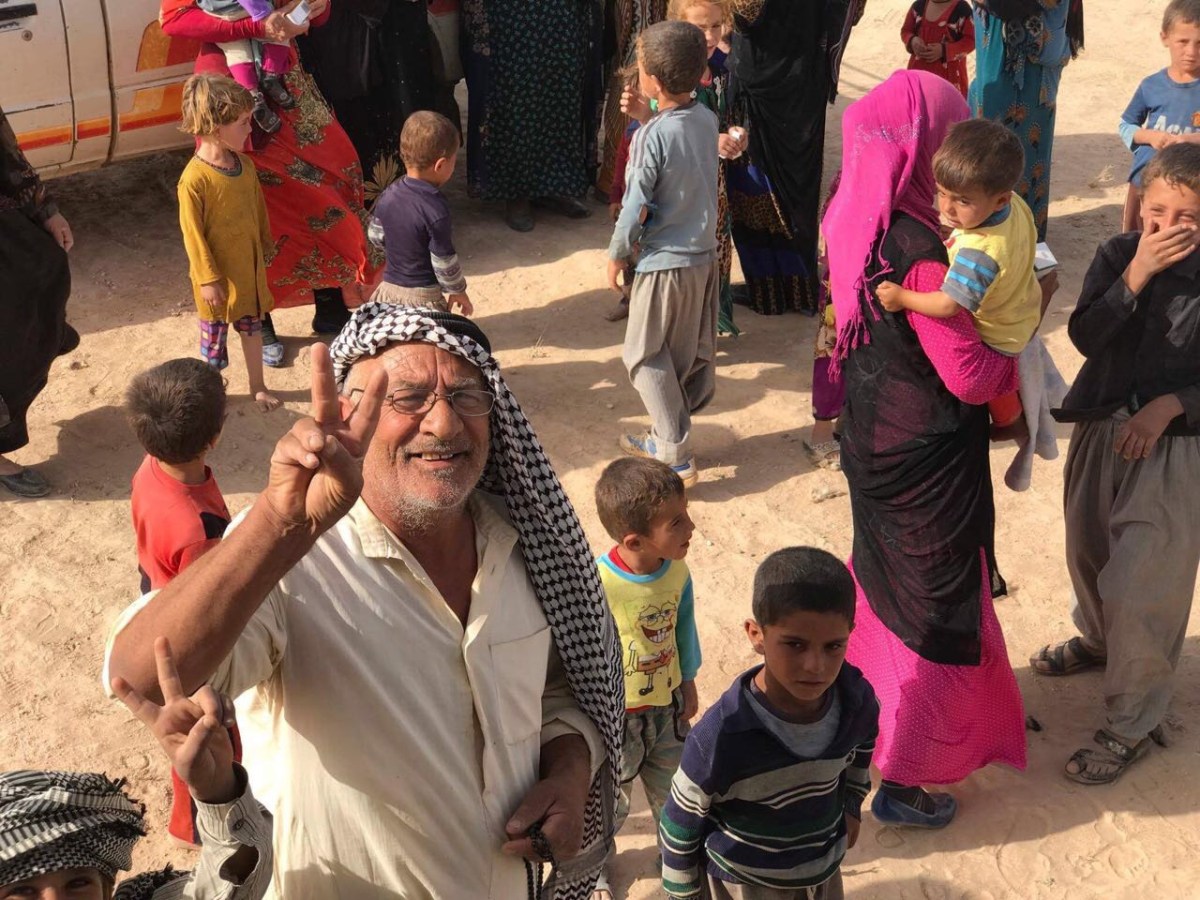Golden, slanted rays of evening light shine against the back wall of the mobile clinic. Dr. Ameer works efficiently in the small structure, inserting a small medical tube into a young girl’s hand after it came out while she played with her sister.
Dr. Ameer is calm and quiet—his demeanor seems as potent a medicine as the IV he administers.
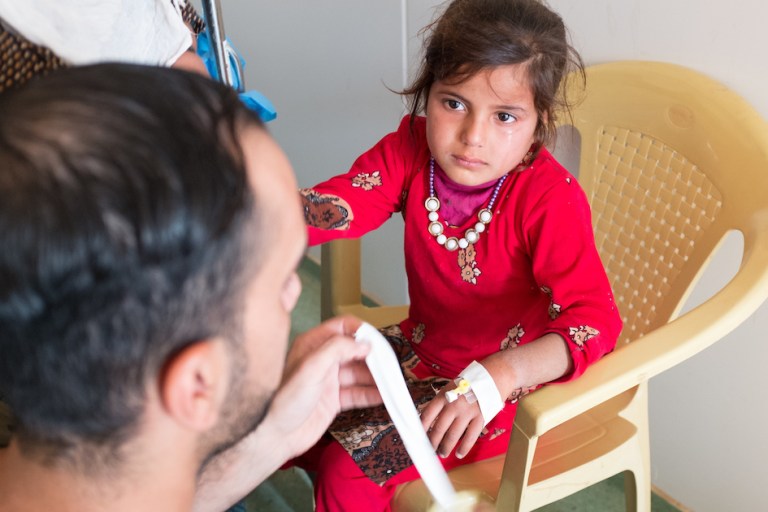
The girl’s grandmother, who returned to her home nearby just a month earlier, when her village was finally liberated from ISIS, knows the mobile clinic is exactly where to bring her granddaughter for help. This family knows how essential access to health care is in rural Iraq.
The grandmother tells us of living in the middle of the desert for a year with her family, hiding from ISIS. She tells us of the day a woman in their group got burned while making bread. A homemade brick of fuel, made from manure, straw, and mud exploded as it burned, covering her body in sticky flames. She lingered for four days before dying without ever being seen by a doctor. It just wasn’t possible in their remote hideout.
As the grandmother tells her story, something Dr. Ameer said comes rushing back to my mind. We had asked why he chooses to work in this dusty outpost near the frontlines.
“I’m useful here.”
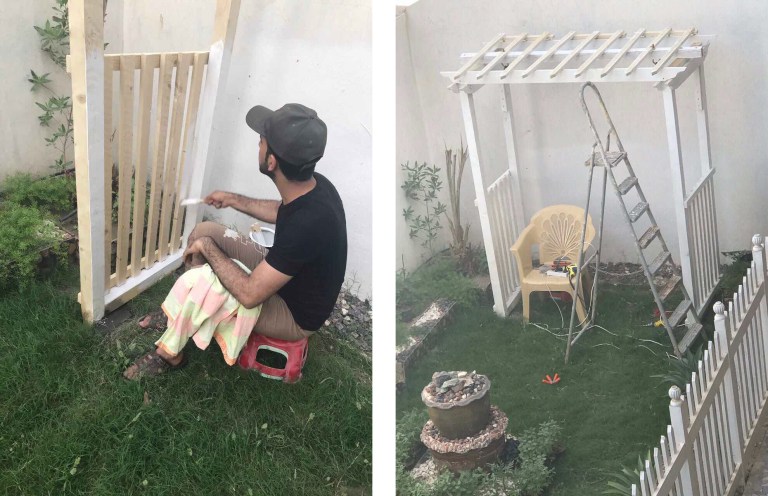
At the beginning of the year, Dr. Ameer’s life looked much like that of many young doctors. He spent three weeks of each month working long hours at a well-equipped urban hospital near his home in southern Iraq. He spent his week off visiting family, catching up with friends, and enjoying hobbies like woodworking and drawing. His life was full and challenging… and safe.
In March, Dr. Ameer took a leave of absence from the stable hospital life he knew to step into the unknown. When you helped open this remote mobile medical clinic and fund Dr. Ameer’s position, he chose to move to a different part of the country to serve Iraqis of a different faith and culture. He gave up the comforts of the city for remote desert conditions marked by springtime mud, summer heat, and fall dust storms. The nearest spot to stock up on medical supplies is a two-hour drive away, on corduroy roads destroyed by war. Yet Dr. Ameer continues to serve the remote communities, even as they are still attacked by ISIS.
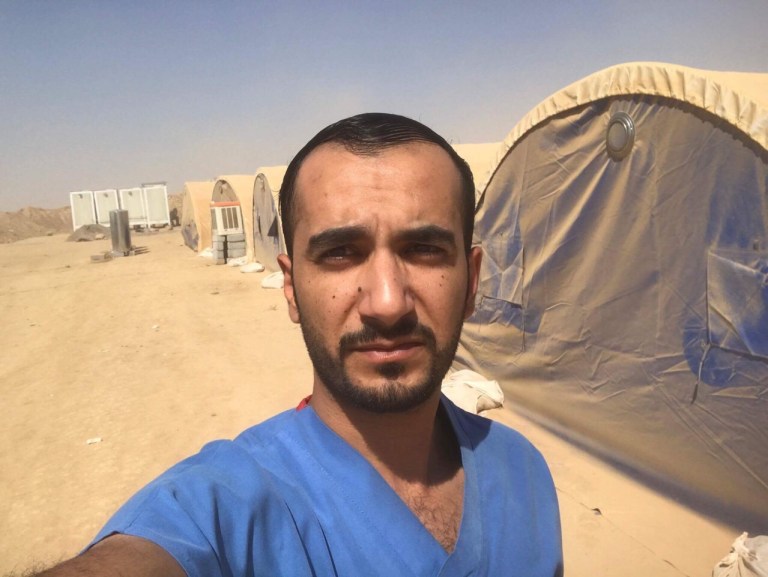
In exchange, Dr. Ameer gets to practice a broader kind of medicine than before. He treats dehydration, upper respiratory tract infections, and skin diseases as always, but he is also able to send food packs you provide to hungry families who need to eat. He diagnoses a variety of ailments in men—and along with medical advice and prescriptions, he is able to offer small business grants to patients with no income and a need to stay busy to help them process trauma.
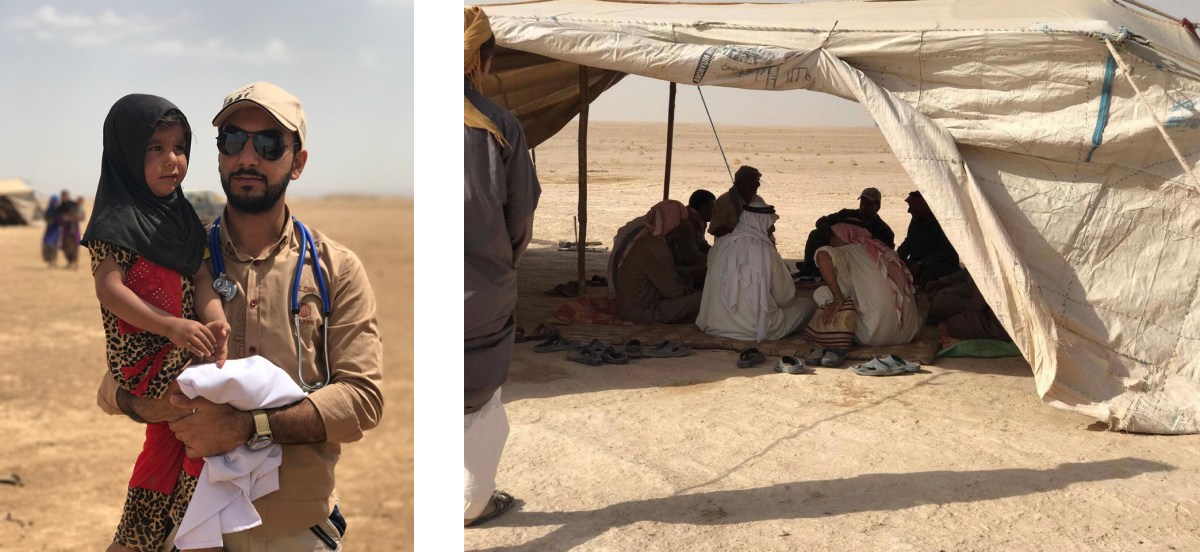
“I’m useful here—more than I would be in another place, as a doctor. The people need… health services here. Because no one came here, no one came because the military situation and security situation—few come here. So I am more useful here than [I would be in] another place.” 
The grandmother who brought her granddaughter in for a new medical tube—she showed up early the next morning with freshly baked bread the doctors could eat for breakfast. It was her way of thanking them for their continued presence.
Today, Dr. Ameer is digging out from a dust storm. “The dust covers everything: the beds, clothes, dishes… We need a fire truck to be clean.” Life at the mobile medical clinic is a real mixed bag.
And it’s one he continues to choose.
“When you were offered this job, did you have to think about it? Or did your heart say yes right away?”
“For a long time I was looking for this.” Dr. Ameer replied. “I tell you, I am very happy.”

